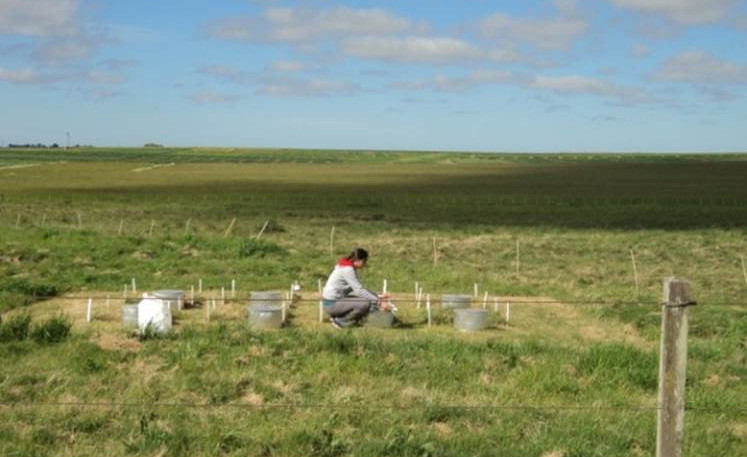Research students planning on a sustainable future
03 November 2023 | News
Reshaping public transport, abolishing minimum parking requirements, and exploring the role of farmers markets were some of the topics covered in a series of recent student research presentations.
The annual event, organised by the New Zealand Planning Institute, involved five Lincoln University Master of Planning students presenting their dissertation research to local government, planning consultancies, friends and families at Tūranga in Christchurch.
Each presentation provided insights and solutions for improving urban and regional landscapes, demonstrating the vital contribution that environmental planners can make in developing more sustainable and equitable cities and towns.
Jess Farrar discussed the role of farmers markets in promoting community wellbeing, using Lincoln and Rolleston markets as case studies, and showing how community-led initiatives can enhance public spaces as centres of trade and social connections.
Aidan Chrystal then presented his case study, Reshaping Public Transport, specifically highlighting rail as a viable option in Christchurch. In spite of the city’s seemingly forgotten rail history, Aidan’s international findings showed promise for reintroducing this mode of transport.
He linked this to the potential success of current Mass Rapid Transit proposals and suggested that rail might help shape urban design, emphasising transit-oriented planning.
Devon Ashcroft explored the likely effects of abolishing minimum parking requirements throughout New Zealand, a potentially radical shift that could have significant consequences for both small and large communities.
Drawing on global experiences, Devon demonstrated what the outcomes might look like for future transport planning and policymaking in New Zealand.
Mies VanHout presented a study examining the values expressed in social media posts regarding the Three Waters Act. By applying a social psychological framework, Mies explored public sentiment around this important environmental policy change in greater Christchurch.
The fifth presentation, given by Jack Davis, provided an in-depth quantitative analysis of walkability in three Christchurch neighbourhoods. Jack explored a potential correlation between the assessed walkability of a neighbourhood and the number of people actually walking.
Although his findings showed some inconsistencies across neighbourhoods, his research will prove valuable for urban planners, architects and policymakers aiming to design pedestrian-friendly communities.
The presentations showcased a wide spectrum of research, exploring both micro and macro elements of environmental planning.
Lincoln University’s Master of Planning is accredited with the New Zealand Planning Institute, which enhances students’ career prospects. The five Master of Planning students to present their research were (from left) Aidan Chrystal, Jack Davis, Devon Ashcroft, Jess Farrar, and Mies VanHout.
The five Master of Planning students to present their research were (from left) Aidan Chrystal, Jack Davis, Devon Ashcroft, Jess Farrar, and Mies VanHout.


